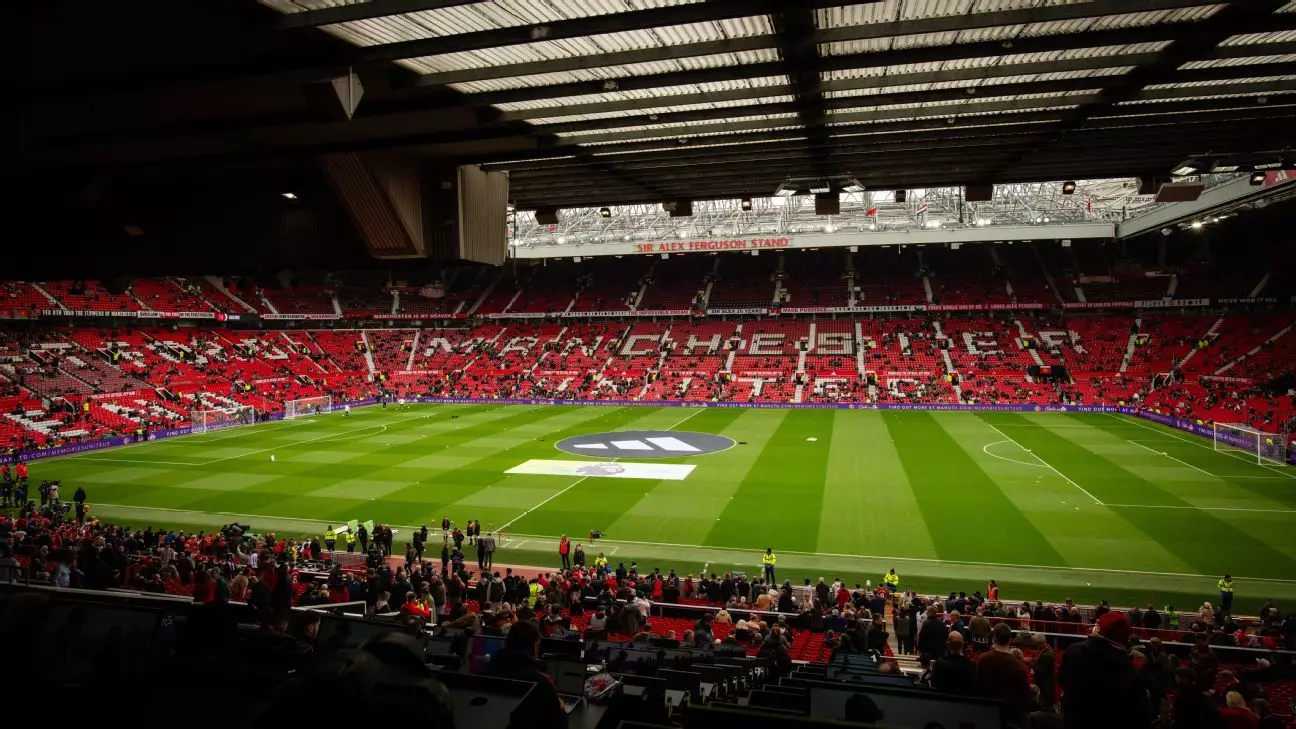Recent findings from a Manchester United fan survey indicate a strong preference among supporters for the construction of a new stadium rather than redeveloping the iconic Old Trafford. With the club contemplating a substantial investment of around £2 billion ($2.6 billion), the voices of over 50,000 respondents reveal that a significant majority—52%—favor the idea of building anew on the current site. This high level of engagement underscores the passionate and active role that fans are taking in discussions about the future of their beloved club’s facilities.
The results of the survey also highlighted a divide in opinion regarding the redevelopment of Old Trafford, with only 31% of fans supporting this option, while a remaining 17% were undecided. Such statistics provoke an intriguing discussion about the changing expectations and aspirations of football supporters today, particularly in an era where modernity and excellence in sports infrastructure are paramount.
To address this multifaceted issue, Manchester United has established a task force led by co-owner Sir Jim Ratcliffe, which includes notable figures such as former player Gary Neville and Manchester’s Mayor Andy Burnham. This committee is expected to provide critical input and recommendations on the future direction of the stadium by the end of the year. For Ratcliffe, the inclination appears to lean toward the construction of a new stadium, which may reshape the club’s legacy. While the ambition is commendable, the ultimate decision remains pending, highlighting the complexities involved in managing fan expectations alongside financial and logistical considerations.
Rick McGagh, the Director of Fan Engagement, highlighted the organization’s commitment to emphasizing fan perspectives in these developmental discussions. By analyzing feedback from various demographic segments—season ticket holders, official members, and older versus younger fans—the club aims to gain comprehensive insights. This method of engagement demonstrates an understanding that fans’ needs and desires may vary significantly across different groups.
The overwhelming favor for a new stadium raises pertinent questions about the future of Old Trafford, which has been a historically significant venue for Manchester United since its opening in 1910. The prospect of a new stadium may symbolize a fresh start and modernization, appealing to younger generations who prioritize updated amenities and experiences at live events. However, the emotional attachment many fans have to Old Trafford cannot be underestimated, and any plan must be sensitive to that sentiment.
Moreover, as the football landscape progresses, clubs must reconsider how they engage with fans during such pivotal decisions. The dialogue surrounding stadium development is more than just a discussion of brick and mortar; it reflects the broader themes of fan loyalty, community identity, and the responsibilities of clubs to their supporters. As Manchester United navigates this critical juncture, the voices of the fans will undoubtedly play a crucial role in shaping the final outcome.

